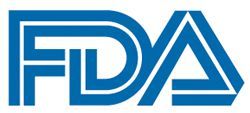FDA Grants Fast Track Designation to BNT325/DB-1305 for Platinum-Resistant Ovarian Cancer
FDA grants fast-track status to BNT325/DB-1305 for patients with platinum-resistant ovarian epithelial, fallopian tube, or primary peritoneal cancer.

The FDA has granted a fast track designation to the next-generation TROP2-directed antibody-drug conjugate (ADC) BNT325/DB-1305 for the treatment of patients with platinum-resistant ovarian epithelial, fallopian tube, or primary peritoneal cancer who have received 1 to 3 prior lines of systemic therapy.1
The designation is based on preliminary data from the ongoing phase 1/2 trial (NCT05438329), which were presented at the 2023 ESMO Congress, and demonstrated that the agent led to an objective response rate (ORR) of 30.4% and an unconfirmed disease control rate (DCR) of 87.0% in patients with TROP-expressing advanced solid tumors (n = 23) who had received a median of 3 prior lines of therapy (range, 1-6).2,3 The one patient with fallopian tube cancer experienced an unconfirmed partial response at the 5-mg/kg dose.
“The FDA’s decision is an important recognition of the potential of our TROP2-targeting ADC candidate. Platinum-based chemotherapy is the backbone of treatment for ovarian epithelial cancer and related subtypes that form in the epithelial tissue,” Professor Özlem Türeci, MD, chief medical officer and co-founder at BioNTech, stated in a news release.1 “Patients with platinum resistance who relapse within under 6 months have a poor prognosis, and effective and well-tolerated treatment options remain a substantial unmet medical need.”
Although TROP2 is an integral element of tumor progression, current TROP2-directed therapies are limited in indication to patients with triple-negative breast cancer (TNBC), hormone receptor (HR)–positive breast cancer, HER2-negative breast cancer, and urothelial carcinoma.3
DB-1305 is a novel ADC composed of a humanized anti-TROP2 IgG1 monoclonal antibody attached to a DNA topoisomerase I inhibitor (P1021) via a cleavable linker.
The global, open-label, first-in-human phase 1/2 study is evaluating BNT325 in patients with advanced or metastatic solid tumors who progressed on standard treatment or for whom no standard therapy is available.
As part of phase 1, investigators evaluated 5 escalating doses of the agent: 2 mg/kg (n = 1), 4 mg/kg (n = 3 to 6), 6 mg/kg (n = 3 to 6), 8 mg/kg (n = 3 to 6), and 10 mg/kg (n = 3 to 6). After determination of a recommended phase 2 dose/maximum tolerated dose (MTD), investigators evaluated the agent across several cohorts in dose expansion: small cell lung cancer (cohort 2a; n = 30 to 40), HR-positive and HER2-negative breast cancer (cohort 2b; n = 40), oncogene driven–negative non–small cell lung cancer ([NSCLC] cohort 2c; n = 30), sacituzumab govitecan-hziy (Trodelvy)–naive TNBC (cohort 2d; n = 25), sacituzumab govitecan–exposed TNBC (cohort 2e; n = 10), NSCLC with actionable genomic alterations (cohort 2f; n = 30), and other solid tumors (cohort 2g; n = 25), favoring referral for patients with epithelial ovarian and endometrial cancer.
The primary end points for phase 1 and phase 2a included safety. Secondary end points in both portions included ORR, DCR, duration of response, time to response, progression-free survival, overall survival, pharmacokinetic and anti-drug antibody evaluation.
At the time of data cutoff, 44 patients had received study treatment, 25 of whom remained on therapy. The median duration of treatment was 1.5 months (range, 0.7-6.1).
Regarding baseline demographics, the median age was 59.0 years (range, 40.0-78.0) and the majority were female (59.1%). Additionally, slightly more than half of patients were enrolled in China (52.3%), and most received prior platinum (88.6%) and had an ECOG performance status of 1 (84.1%). Only 2 patients had ovarian cancer.
Regarding safety, dose-limiting toxicities occurred in 3 patients who received the 6-mg/kg dose. As such, 5 mg/kg was established as the MTD.
Treatment-related adverse effects that occurred in at least 20% of patients were stomatitis (all grade, 75.0%; grade ≥3, 22.7%), nausea (29.5%; 2.3%), decreased lymphocyte count (22.7%; 13.6%), infusion-related reaction (20.5%; 0%), decreased appetite (20.5%; 0%), mucosal inflammation (0%; 2.3%), and interstitial lung disease (2.3%; 0%).
“BNT325/DB-1305 is the second investigational asset in our strategic collaboration which has received FDA fast track designation highlighting the potential of the candidate to fill an unmet medical need,” Vivian Gu, MD, chief medical officer at DualityBio, said. “Data from the phase 1/2 clinical trial with BNT325/DB-1305 have demonstrated encouraging anti-tumor signals in heavily pretreated patients with TROP2-expressing solid tumors who had failed standard therapy…We look forward to progressing the further development of BNT325/DB-1305 within the fast-track framework and hope to be one step closer to potentially improving outcomes for a range of patients.”
In December 2023, the FDA granted breakthrough therapy designation to BNT323/DB-1303 for use in patients with advanced endometrial cancer who had progressed on or following immune checkpoint inhibitors.4
References
- BioNTech and DualityBio receive FDA fast track designation for next-generation antibody-drug conjugate candidate BNT325/DB-1305. News release. BioNTech SE. January 31, 2024. Accessed February 5, 2024. https://investors.biontech.de/news-releases/news-release-details/biontech-and-dualitybio-receive-fda-fast-track-designation-next
- First-in-human study of DB-1305 for advanced/metastatic solid tumors. ClinicalTrials.gov. Updated December 21, 2023. Accessed February 5, 2024. https://clinicaltrials.gov/study/NCT05438329
- Marathe O, Cheng Y, Spira AI, et al. DB-1305 (a Trop-2 targeted antibody-drug-conjugate [ADC]) in patients (pts) with advanced solid tumors: Preliminary clinical results from the phase (Ph) I/IIa study. Ann Oncol. 2023;34(suppl 2):S480. doi:10.1016/j.annonc.2023.09.1875
- BioNTech and DualityBio receive FDA breakthrough therapy designation for antibody-drug conjugate candidate BNT323/DB-1303 in endometrial cancer. News Release. BioNTech. December 21, 2023. Accessed February 5, 2024. https://investors.biontech.de/news-releases/news-release-details/biontech-and-dualitybio-receive-fda-breakthrough-therapy



